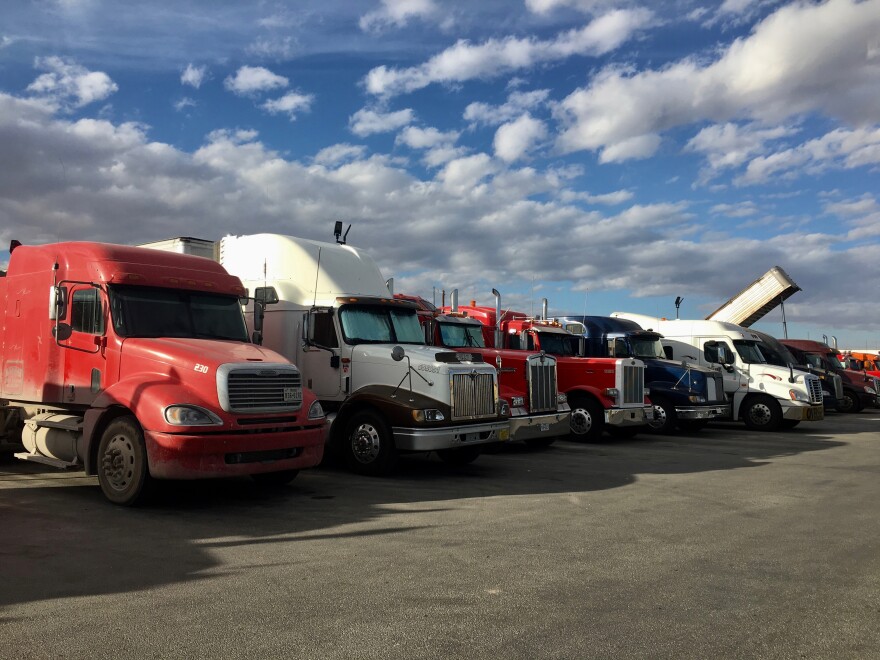By Mitch Borden
Outside of a Midland truck stop, Charles Goff is on his way back to his semi to enjoy a few more hours of rest before he gets back on the road. He says he can really get comfortable in his rig.
“I get to sleep in something that’s like a one bedroom apartment. I got my own refrigerator, TV, microwave, skillet. I mean it’s just like home. Without the wife though.”
For the last 18 years, Goff’s been driving all over the region as a commercial trucker. He loves it, but he says he wouldn’t want his family driving around here.
“No, I got a 21-year-old who wants to do this and I won’t let him. You see all these trucks up here. You look at I-20, its a cluster. You go out to like Kermit. It’s dangerous.”
The backed up roads, the poor infrastructure — Goff is pretty used to these difficulties. He sees them every day while he’s hauling frac sand around the Permian Basin.
“It’s just a 24/7 traffic congestion up here, that’s all it is. It’s a town that never sleeps,” says Goff.
These problems aren’t just affecting drivers like Goff, they’re also affecting the area’s bottom line, says James Beauchamp.
“That lack of infrastructure out here has caused an enormous problem in the value of West Texas crude.”
Beauchamp is with the Midland-Odessa Transportation Alliance, or MOTRAN. The non-profit estimates Texas is currently losing around a billion dollars in taxes partly because of the region’s infrastructure problems.
He says, “A lot of the things we can do today are pretty simple. It's just a matter of getting the state to make that investment out here.”
According to Beauchamp, West Texas crude lags behind other oil because it’s hard to get to. If there were infrastructure upgrades that improved the flow of traffic, like expanding highways and installing traffic lights, the price per barrel could go up. That would make the taxes collected from oil and gas rise as well.
State Rep. Brooks Landgraf is one of the few people who represent the Permian Basin in the Texas House of Representatives. He says, “If we’re not meeting the basic infrastructure needs of the energy producing regions of our state. Then that is going to have negative economic implications.”
He’s working on a bill for the upcoming legislative session that would divert some of the oil and gas taxes that’d normally go towards the state’s “rainy day fund” and put that money towards roads in oil-producing regions.
According to Rep. Landgraf, “Other parts of the state seem to view the Permian Basin and the Eagle Ford Shale and certain parts of East Texas as, extraction colonies that are to be exploited for our natural resources but not provided with the same infrastructure or state services that other parts of the state enjoy.”
If oil and gas taxes were redirected, Landgraf estimates his bill could generate hundreds of millions of dollars annually for road maintenance and improvements. He says infrastructure investment wouldn’t just be beneficial for the folks who live in the Permian Basin — it would be good for pocketbooks across the state.
“Look, if you choke off oil and gas production in the Permian Basin then your downstream jobs, the executive positions for oil and gas companies that in Houston, are going to dry up.”
Landgraf has an uphill battle to convince legislators his plan is a good idea because only a small fraction of the Texas population lives in the region.
Until an infrastructure solution is set in stone, drivers in the Permian Basin will just have to make due.


